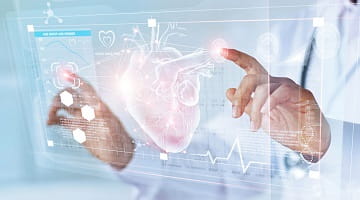Centre for Natural Products Discovery
The Centre for Natural Products Discovery (CNPD) is a world-class centre that incorporates unique and unrivalled expertise, experience and state-of-the art instrumentation to investigate several key aspects of natural products, including phytochemistry, phytotherapy, pharmacology, toxicology, synthesis, formulation, analysis and the development of nutraceuticals and functional foods.
CNPD was established in March 2019 and is housed within the School of Pharmacy and Biomolecular Sciences (PBS). It carries out externally-funded natural products research towards the discovery of new, high-value products, thus contributing to tackling current and future societal and global challenges in health and well-being, socio-economic growth, natural conservation and environmental sustainability through exploration of natural products.
Our vision is to become an International Centre of Excellence in Natural Products Discovery and undertake high-impact natural products research, provide scientific research training, play active role in research dissemination, advocacy, public engagement and social and economic contributions, as well as engaging in research capacity building.
We aim to:
- Conduct natural products research that is inter-disciplinary, translational and delivers a positive impact for scientific advancement, global healthcare, socio-economic prosperity, conservation and environmental sustainability and policy making.
- Serve as a global centre of excellence for natural products research in the following roles: scholarship, training, knowledge exchange/transfer, collaboration, consultancy, commercialisation, and capacity, skills and career development.
- Provide strategic intellectual and technical leadership, globally, on existing and emerging issues on natural products and use the centre’s know-how to predict future directions and challenges for natural products research.
- Be involved in research dissemination, social engagement, policy discourse and public advocacy on natural products.
We contribute actively and are committed to the fulfilment of our institution’s strategic plan (currently 2017-2022) in the areas of outstanding student experience, excellence in education, impactful research and scholarship, as well as civic and global engagement.
Some of our excellent records to date include the following:
- We have supervised postgraduate students and postdoctoral fellows through competitive international scholarships and fellowships (e.g., Commonwealth Scholarships and Fellowships (including Commonwealth Rutherford Postdoctoral Fellowship), World Bank Robert Macnamara Fellowship, Marie Curie Postdoctoral Research Fellowships, Trialect Fellowships). We have also received research grants including the Defence and Security Accelerator (DASA) Grant.
- We have published high-impact research in leading journals and collaborated with a wide range of colleagues across the world.
- We hold esteemed positions in external scientific and regulatory organisations, such as the Phytochemical Society of Europe (PSE), where our Founding Head (Prof Satya Sarker) was the President (2018-20) and Dr. Kenny Ritchie is currently the Treasurer.
- Our operational Head, Professor Rahman, is a member of the Speciality Committee of Traditional Chinese Pharmacognosy affiliated to the World Federation of Chinese Medicine Society (WFCMS). Dr Prieto-Garcia is a member of the European Scientific Cooperative on Phytotherapy (ESCOP) and a former advisor to the Medicines and Healthcare Products Regulatory Agency (MHRA).
- Our members are often invited to various scientific conferences and institutional meetings locally, nationally, and globally to deliver guest and keynote lectures and seminars.
- We have hosted and organised international meetings, such as the Phytochemical Society of Europe (PSE) Young Scientists’ Meeting of 2018, attended by participants from over 27 countries.
- We have successfully advised international companies in the medical and wellness sectors on how to develop both quality control protocols and innovative natural products currently sold in the USA and Europe.
Leadership and management
The Founding Head of the Centre is Professor Satyajit Sarker, who provides strategic directions. Professor Khalid Rahman is the Head of the Centre who manages all operational matters of CNPD.
The Centre is led by a Management Committee comprising the Founding Head, the Head of the Centre and eight Sections Leads. There is also an Executive Board.
Our expertise
Take an in-depth look at our areas of expertise:
Natural Products Synthesis
Natural Products Analysis
Phytochemistry and Phytotherapy
Natural Products Pharmacology
Natural Products Formulation and Delivery
Natural Products Toxicology
Microbial Natural Products
Nutraceuticals Functional Foods

Instrumentation/Facilities
- Thin layer Chromatography (TLC)
- Column Chromatography
- Analytical and preparative HPLC with various detectors (Agilent, Jasco and Dionex)
- Flash Chromatography - Automated Combi-Flash Chromatography
- UV and IR spectroscopy
- NMR spectroscopy (ID, 2D) - 300 and 600 MHz (Bruker)
- Several GC, GC-MS and LC-MS (Agilent)
- High-Resolution Mass Spectrometry (HR-MS)
- X-Ray crystallography
- Differential Scanning Calorimetry (DSC)
- Suites and instrumentation for pharmacological and toxicological assays, antimicrobial assays, cell and molecular biology, imaging, etc. These include bioassays (in vitro and ex vivo), culturing primary and secondary cells (cell lines), flow cytometry, RT-PCR, immunoblotting, immunohistochemistry, etc. These are housed within our multi-million pound, ultra-modern Life Sciences Building, LSB (Max Perutz Building) and the James Parsons Building.
- Microscopy suites/imaging facility – confocal microscopes, SEM, TEM (all housed within the LSB).
LJMU has recently invested £8m in new facilities within the Faculty of Science, especially the recently refurbished, research-only, Life Sciences Building (Max Perutz Building) housing molecular biology laboratories, biochemistry, and cell culture, as well as imaging facilities, including confocal and electron microscopes. LJMU has also invested £200K on a newly refurbished microbiology laboratory hosting ‘state of the art’ equipment, including UV PCR workstations and high-throughput mini-scale cell cultivation systems.
Contact us
School of Pharmacy and Biomolecular Sciences
James Parsons Building,
Liverpool John Moores University,
Byrom Street, Liverpool L3 3AF, UK
Tel: +44(0) 151 231 2087; +44(0) 151 231 2096




